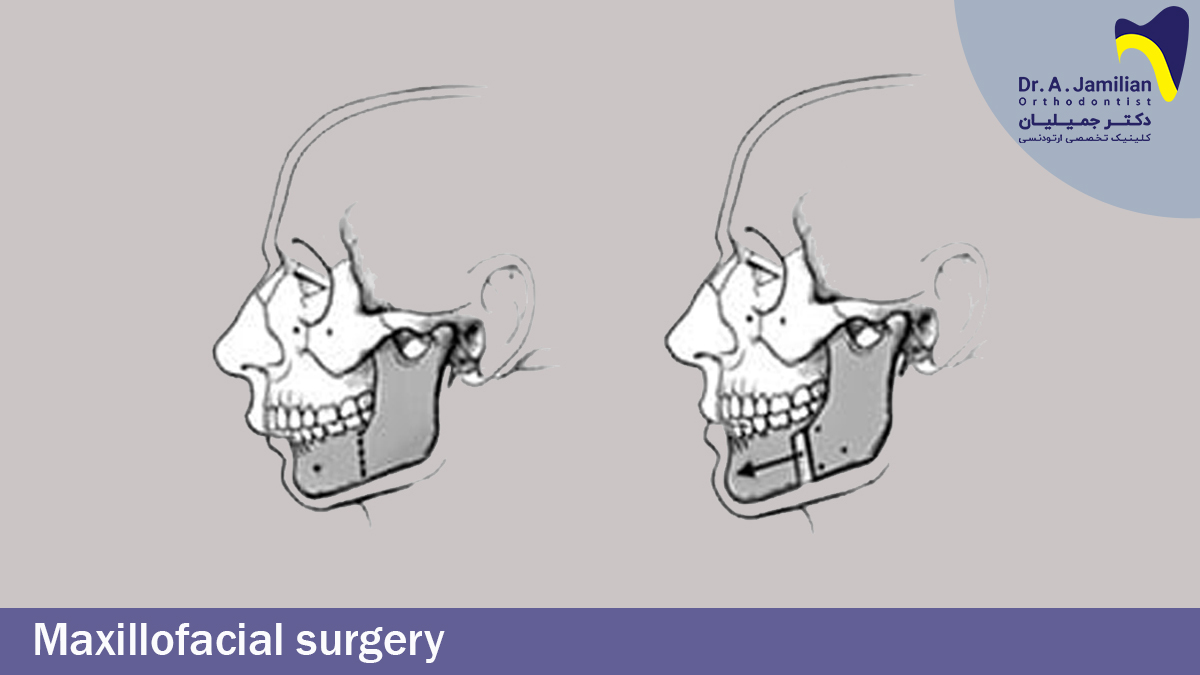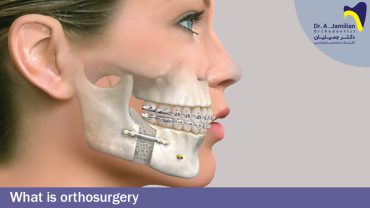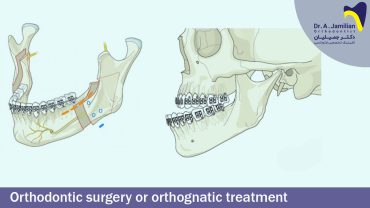An immense amount of dental irregularities may be treated through orthodontics alone without any need for jaw surgery. It’s a brilliant treatment plan, what makes it better is to go at earlier ages. Going back, severe jaw malformations or dimensional incoordination will require maxillofacial surgery in orthodontics. Or, orthognathic surgery that will consist of surgery and orthodontics to align the teeth. Maxillary bones and associated tissues in an appropriate anatomical position.
Orthodontic surgery is used for a wide range of maxillofacial complications such as congenital malformations, growth disorders or acquired traumatic injuries to improve mastication, speaking, and breathing functions. Moreover, maxillofacial surgery in orthodontics improves facial beauty. Maxillofacial surgery may be required if facial bone and skeletal components are present or the patient does not refer an orthodontist at the appropriate age.
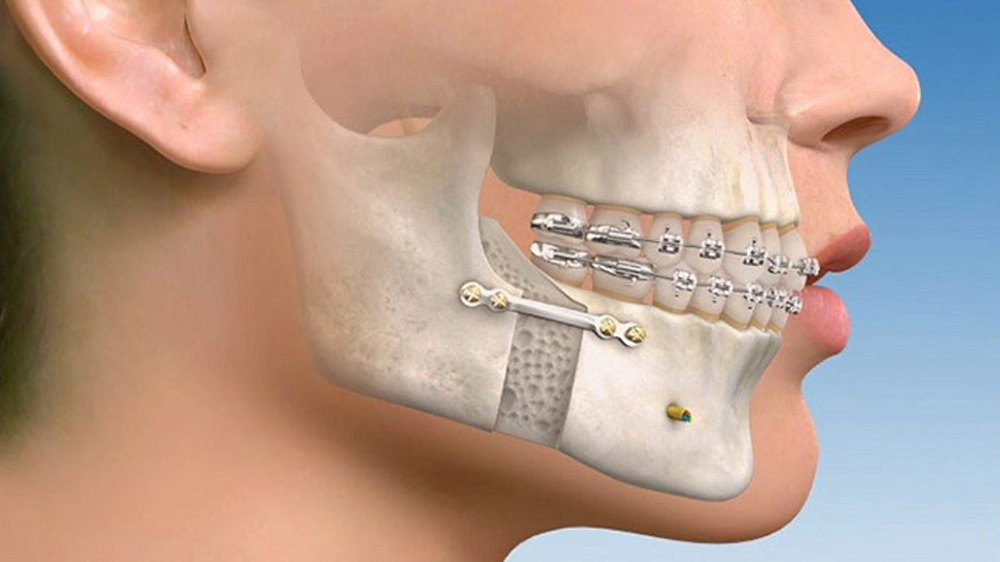
In other words, the patient needs both orthodontics treatment and jaw surgery. A type of popular prerequisite for jaw surgery is also orthodontics. . Some problems requiring jaw surgery arising if patients do not visit at an appropriate age include:
- Mandibular prognathism
- Mandibular retrognathia
- Lack of chin
- Mandibular deviation
- Maxillary deviation
- Severe maxillary stenosis
- Gingival overexpose during smiling
- Congenital defects and syndromes
- Complications of jaw trauma
The normal jaw
The first criteria in diagnosing the need for maxillofacial surgery is to distinguish the normal healthy jaw from an abnormal unhealthy jaw.
Proper matching of the maxillary and mandibular molar teeth is the absolute most important indicator of a healthy jaw. In addition to that, the maxillary anterior teeth are placed about 1 to 2 mm ahead of the mandibular teeth and cover them.
People who have teeth with the above-mentioned apparent features are considered to have a normal jaw and thus do not need maxillofacial surgery for orthodontics.
Indications of maxillofacial surgery
Maxillofacial surgery in orthodontics or orthognathic surgery is performed in many cases, but it is mainly carried out when orthodontics alone is not able to resolve the problem and its symptoms.
Correction of congenital malformations such as developmental disorders of the jaw, correction of mastication, prolonged orthodontics, reduction of overall duration of treatment, facial esthetics, improvement of breathing condition, improvement of speech and treatment of jaw pain and open bite are among applications of orthognathic surgery.
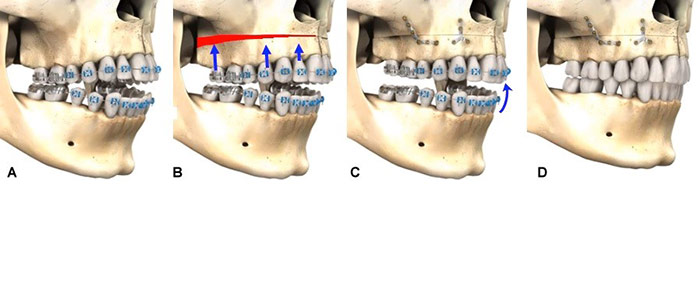
Open bite and orthognathic surgery
If the patient’s teeth are not properly aligned (open bite), the dentist will first arrange the teeth orthodontically, and then will produce to recommends jaw surgery.
Malocclusion of the upper and lower teeth may result in inadequate chewing, tooth abrasion and, in severe cases, swallowing and digestion problems.
The treatment protocol in most open bite cases includes initial orthodontics to arrange and align the teeth and then maxillofacial surgery followed by the second phase of orthodontics.
A priority is given to maxilla and mandible alignment and surgery consolidation in the second phase of orthodontics, which lasts about 6 to 9 months.
Maxillofacial surgery recovery
After completing the maxillofacial surgery and then orthodontic treatment, the teeth are bonded with wire and elastic bands and the jaws begin to repair and heal.
After maxillofacial surgery, the jaws are completely closed for about 4 to 6 weeks and the patient is allowed to only drink fluids using straw, the patient should not eat any solid food and should only eat mixed watery foods.
After 6 weeks, the patient gains access to consume soft foods with minimal pressure on the jaws. A while later, the patient can return to normal diet with caution with the dentist discretion & rules.
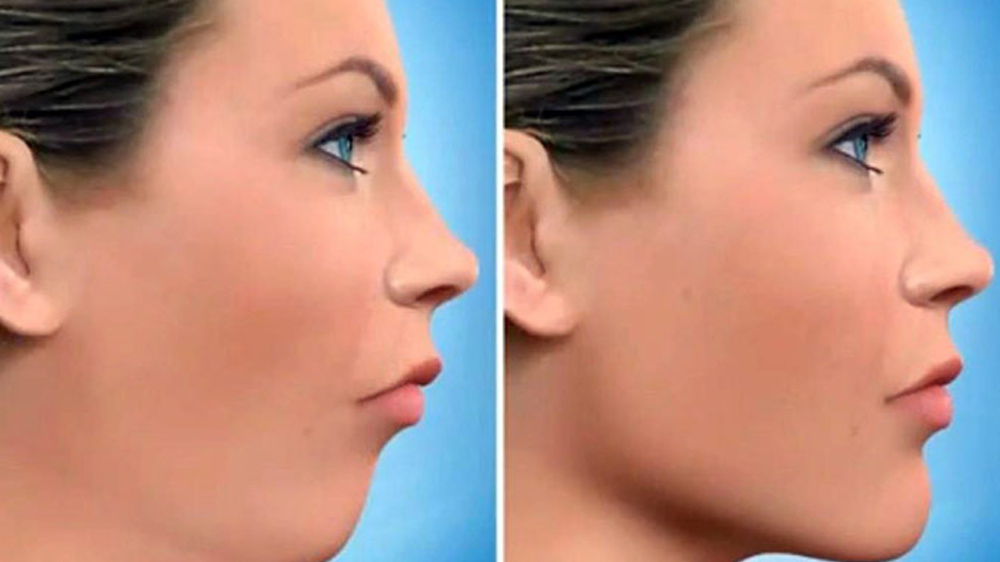
Possible complications of orthognathic surgery
Similar to many other surgical interventions, maxillofacial surgery is associated with its own potential types of complications and risks. For this very reason, it is advisable to consult with an orthodontist thoroughly, consider advantages and disadvantages of orthognathic surgery, before deciding on operation, especially in cases where the surgery is not necessary and only facial esthetic is concerned.
Major postoperative risks and potential complications include:
- Surgery pain
- Inflammation and swelling
- Bleeding
- Secondary infections
- Damage to normal tissue and structure of gums, bones and teeth
- Complications associated with anesthesia
Maxillofacial surgery FAQ
1-Why did my orthodontist refer me to an oral and maxillofacial surgeon specifically?
Many patients who have severe maxillofacial deformities will and must be referred to an oral and maxillofacial surgeon. After puberty, when the bones have finished growth and it’s full formation, their jaws cannot be moved by removable orthodontic devices. These patients are referred to an oral and maxillofacial surgeon to correct their maxillary deformities. This is why orthodontic is better at earlier ages.
2-What is the difference between a dental surgeon and an oral and maxillofacial surgeon?
A dental surgeon performs surgeries related to teeth and gums, such as impacted wisdom tooth removal which cannot be performed with routine methods. But an oral and maxillofacial surgeon can change the position of the maxillary bone with surgery.
3-How much does oral and maxillofacial surgery cost?
The oral and maxillofacial surgeon first examines the patient and then determines the cost based on the severity of deformities. The hospital and clinic costs vary depending on location and facilities. Some patients may require multiple surgeries. Finally, the cost of oral and maxillofacial surgery is determined by the surgeon based on the mentioned factors.
4-Should I first visit an oral and maxillofacial surgery or an orthodontist?
The majority of patients with maxillary deformities have malpositioned teeth, so it is recommended that they first visit an orthodontist. Orthodontics must be performed before the orthodontist can refer the patient to an oral and maxillofacial surgeon. The oral and maxillofacial surgeon does not correct the arrangement of teeth, but changes the placement of the jaws.
5-Is oral and maxillofacial surgery performed in state hospitals?
Oral and maxillofacial surgery is performed in state hospitals affiliated with universities of medical sciences by an oral and maxillofacial surgical resident supervised by the supervising professor.
